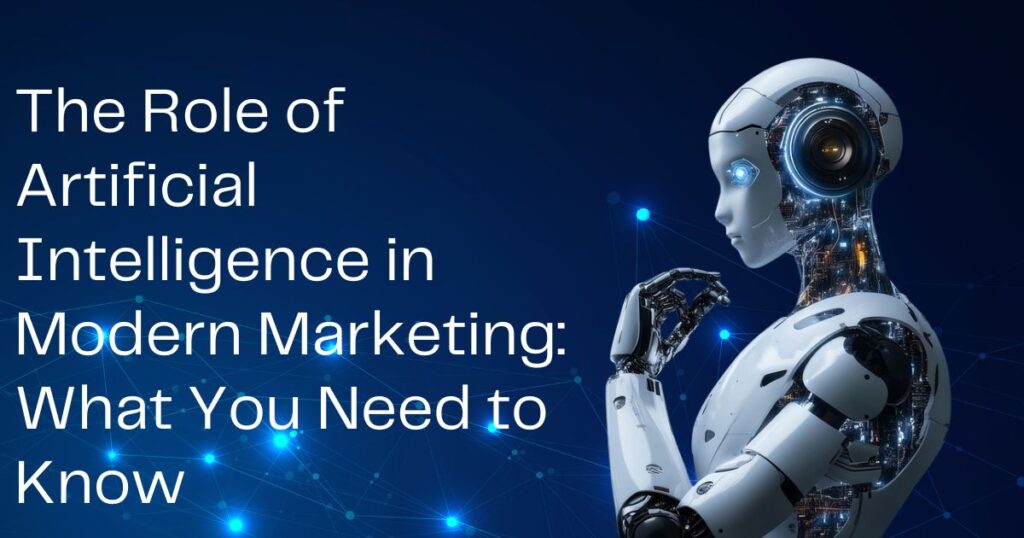Introduction: How AI Is Transforming Marketing Today
Artificial Intelligence (AI) has emerged as a powerful force in the modern marketing landscape. Once a futuristic concept, AI is now at the heart of how brands understand customers, create content, and drive conversions. In today’s data-driven world, AI in marketing is no longer optional — it’s a competitive necessity.
From chatbots to predictive analytics and automated content creation, AI is streamlining marketing operations and delivering personalized experiences at scale. In this blog, we’ll explore the role of artificial intelligence in marketing, its benefits, tools, challenges, and what the future holds.
What Is AI in Marketing?
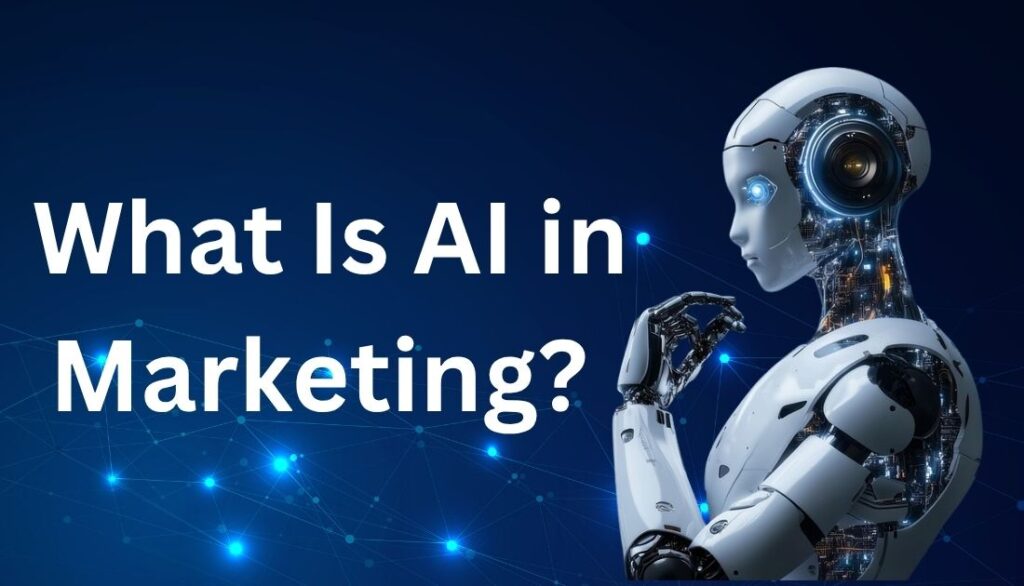
Artificial intelligence in marketing refers to the use of machine learning, natural language processing (NLP), and data analytics to make automated, data-backed decisions in marketing strategies. Unlike traditional marketing, AI systems continuously learn and improve over time — allowing for smarter campaigns and more personalized customers experiences with your website, social media and ads.
Key functions of AI in marketing:
- Automating repetitive tasks
- Analyzing customer data
- Personalizing content and messaging
- Predicting user behavior
- Optimizing ad targeting
1. Key Benefits of AI in Modern Marketing
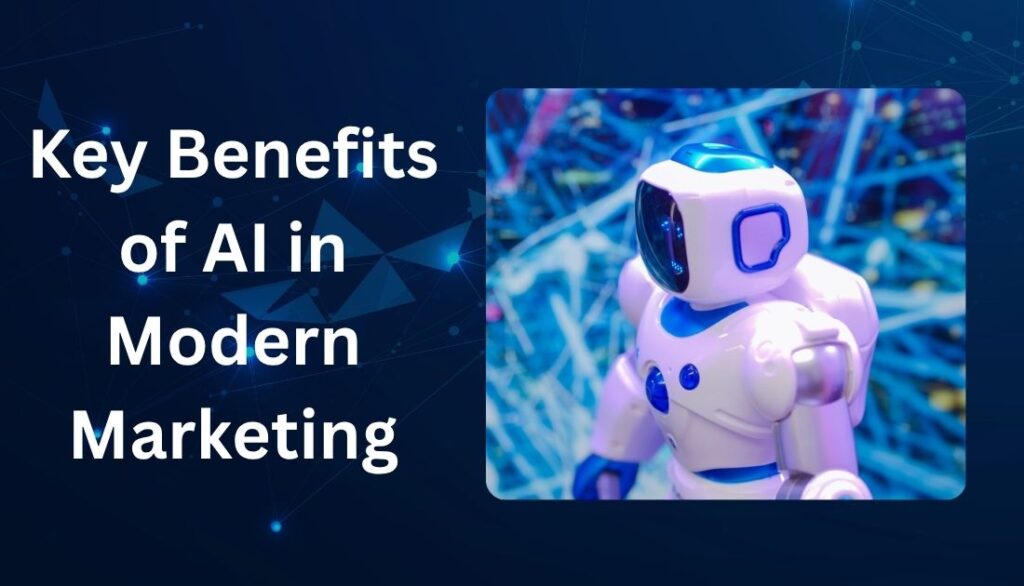
AI offers numerous advantages that make it indispensable for marketers today:
- Enhanced Customer Insights: AI can analyze vast datasets in seconds, helping marketers understand buyer behavior and preferences more accurately.
- Personalized Customer Experiences: From emails to product recommendations, AI tailors content to individual users in real time.
- Efficient Marketing Automation: Repetitive tasks like sending emails or scheduling posts can be automated, saving time and reducing human error.
- Improved ROI: By targeting the right audience at the right time, AI helps brands reduce wasted ad spend and increase conversions.
2. Popular AI Tools in Digital Marketing
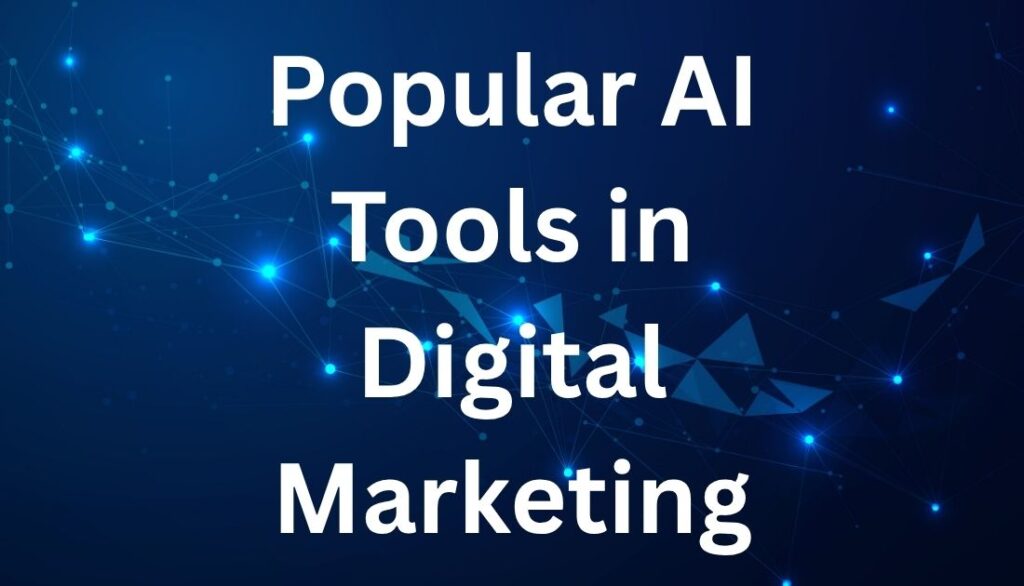
Marketers today have access to a wide range of AI-powered tools across different functions. Here are some of the most popular categories:
a. Chatbots and Virtual Assistants
- Tools like Intercom, Drift, and ManyChat offer automated customer support, lead qualification, and engagement around the clock.
b. Predictive Analytics Tools
- Platforms like HubSpot, Salesforce Einstein, and Adobe Sensei use AI to predict customer behavior and optimize campaign performance.
c. Content Creation Tools
- Tools such as Jasper, Copy.ai, and Writesonic use natural language processing to generate blog posts, ad copy, and product descriptions.
d. Ad Optimization Platforms
- Google Ads and Facebook Ads use AI to improve targeting, budget allocation, and bidding strategies.
3. AI-Driven Customer Segmentation and Personalization
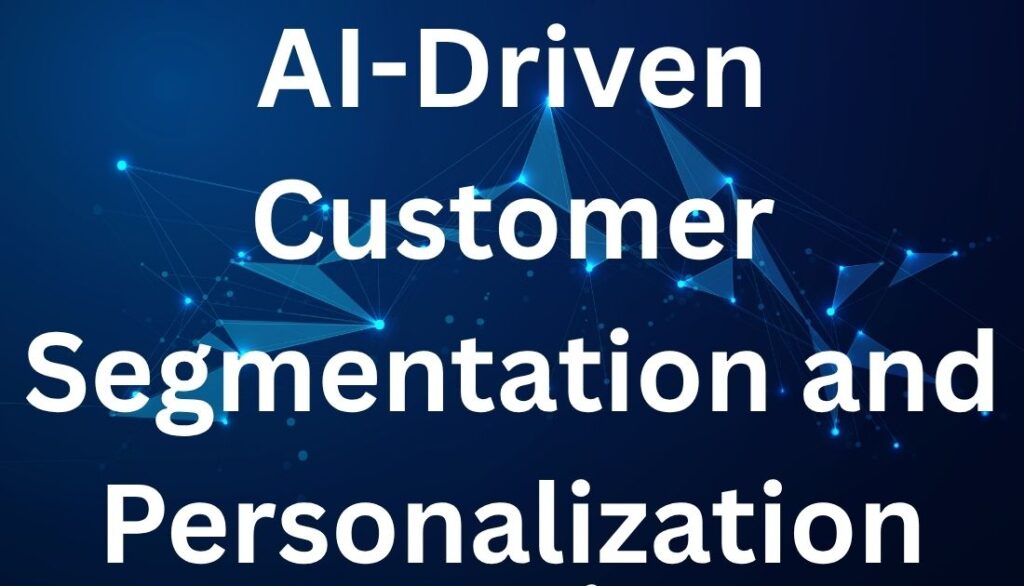
One of the biggest advantages of AI in marketing is its ability to segment audiences based on data — not assumptions. Machine learning algorithms can analyze user behavior, demographics, and engagement patterns to divide your audience into micro-segments.
This allows brands to:
- Deliver personalized email campaigns
- Show targeted ads
- Recommend products based on purchase history
- Create custom user journeys
Example: Amazon’s recommendation engine, powered by AI, accounts for up to 35% of its sales.
4. AI in Content Marketing and SEO
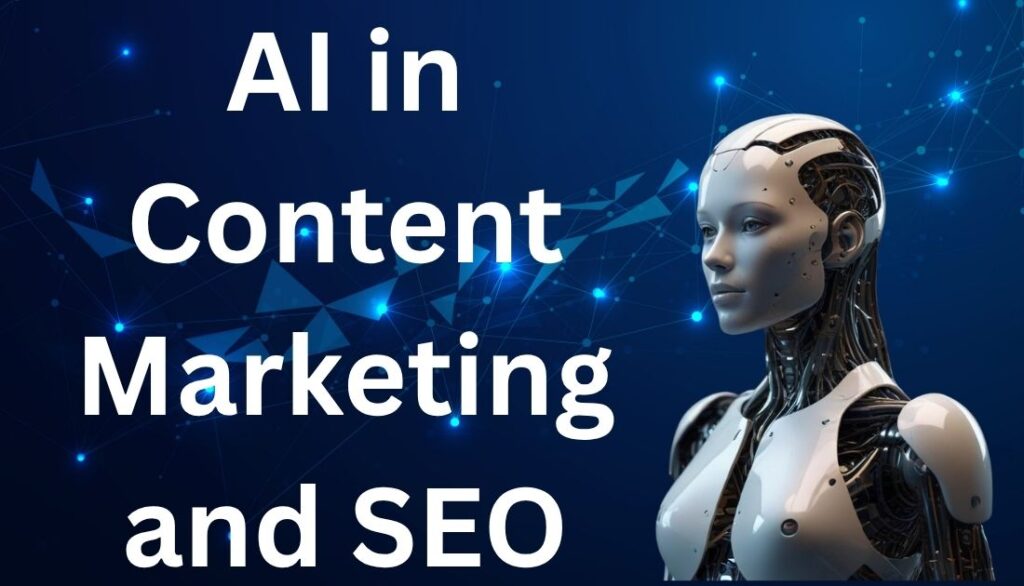
AI is transforming how content is created, optimized, and distributed.
a. Content Generation
AI-powered platforms can now write articles, social media posts, and product copy that are both engaging and SEO-friendly.
b. Content Optimization
Tools like SurferSEO, Clearscope, and MarketMuse analyze top-ranking content and provide recommendations to improve your own — from keyword density to structure and tone.
c. Performance Tracking
AI tools analyze how content performs across platforms and suggest real-time improvements to increase visibility and engagement.
5. Email Marketing Automation with AI
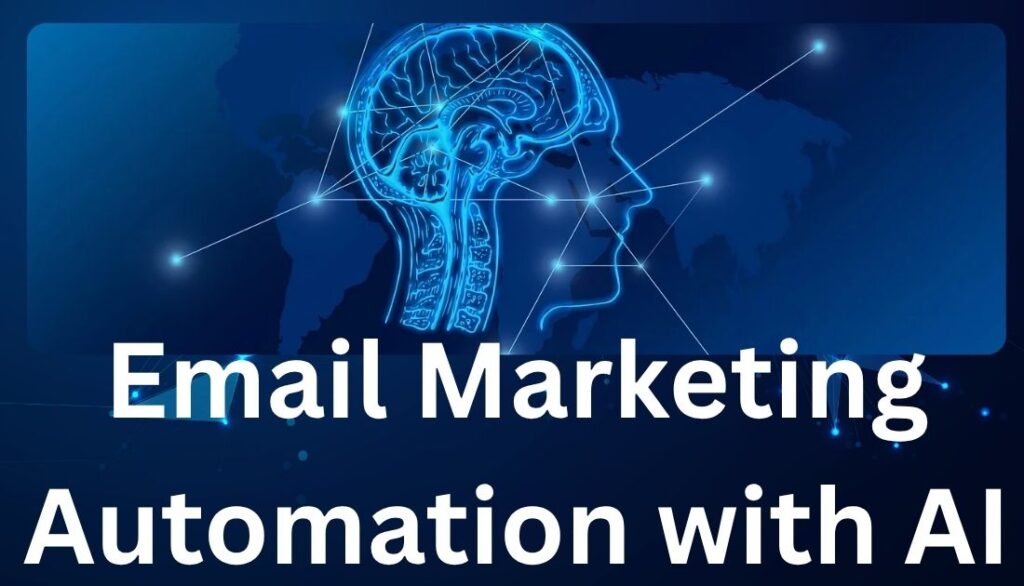
AI enables hyper-personalized email campaigns by analyzing customer behavior and interaction history. It can:
- Send emails at optimal times for engagement
- Personalize subject lines and body text
- A/B test multiple versions automatically
- Trigger drip campaigns based on user actions
Example: AI can detect when a user abandons a cart and automatically send a personalized follow-up email with a discount code.
6. Conversational Marketing: Chatbots in Action
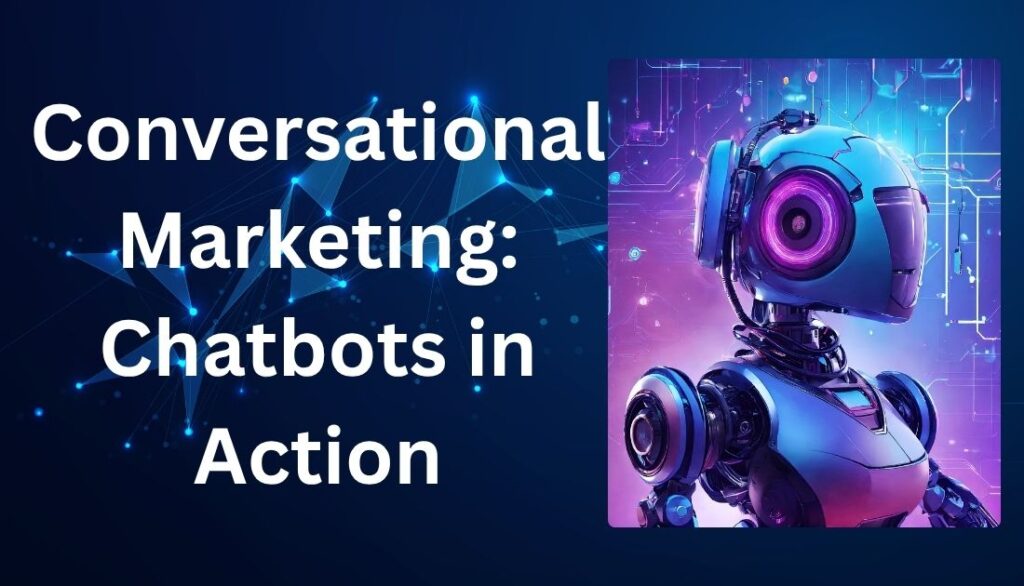
AI chatbots are changing the way brands interact with customers. Instead of waiting for human support, users can get instant answers — improving satisfaction and reducing bounce rates.
Benefits of AI chatbots:
- 24/7 customer support
- Instant lead qualification
- Seamless product recommendations
- Data collection and analysis
7. Challenges and Ethical Concerns of AI in Marketing
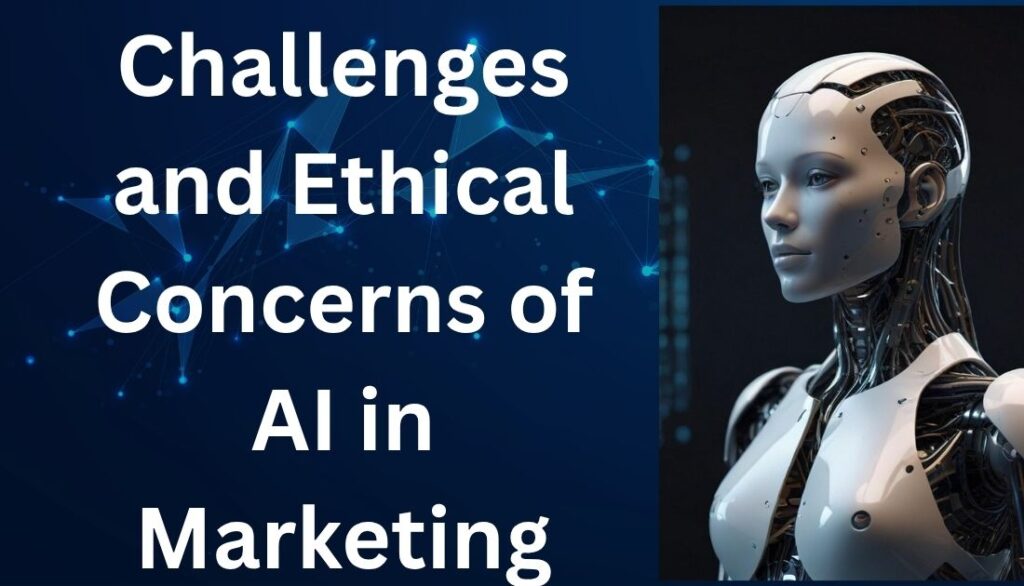
Despite the benefits, AI in marketing raises important concerns:
a. Data Privacy
With increasing reliance on data, brands must comply with regulations like GDPR and CCPA to protect user information.
b. Bias in Algorithms
AI can unintentionally amplify societal biases present in training data — leading to unfair targeting or discrimination.
c. Over-Automation
Relying too heavily on AI can remove the human touch from marketing, potentially alienating customers.
8. The Future of AI in Marketing: What to Expect
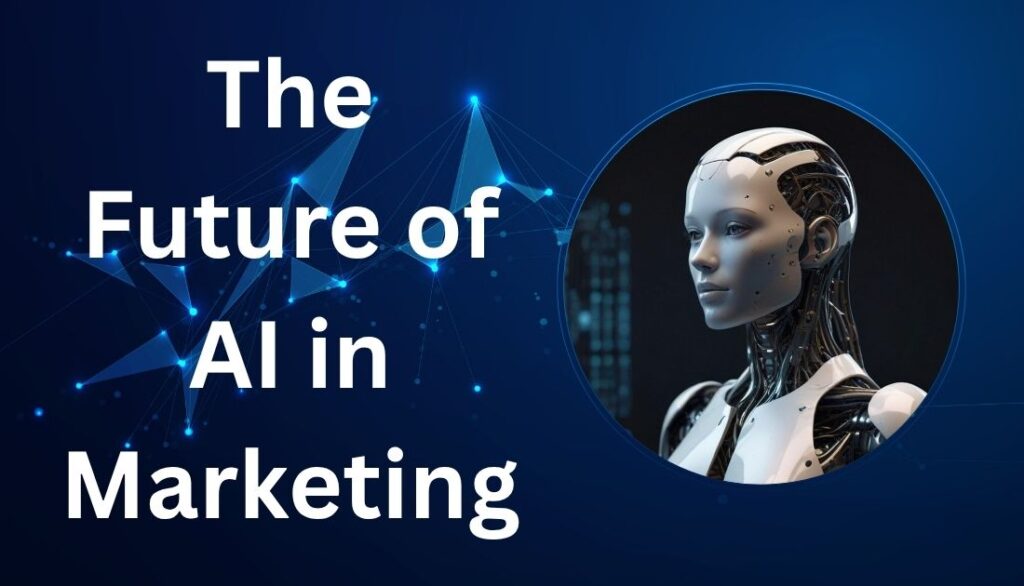
AI continues to evolve rapidly, and the future of marketing will be even more intelligent, predictive, and immersive.
Emerging trends to watch:
- Voice Search Optimization: More users are searching via voice — AI helps tailor content for conversational queries.
- AI in Video Marketing: Generative AI can now create videos, animations, and personalized visuals at scale.
- Augmented Reality + AI: Brands will blend AI with AR for immersive shopping experiences.
- Predictive Customer Journeys: AI will anticipate customer needs before they even arise, creating proactive marketing.
Conclusion
The role of artificial intelligence in modern marketing is expansive, evolving, and essential. From improving personalization and automating content to optimizing ads and understanding customer behavior, AI empowers marketers to work smarter, not harder.
As technology continues to advance, the brands that effectively integrate AI into their marketing strategies will lead the way in innovation, customer satisfaction, and revenue growth.

